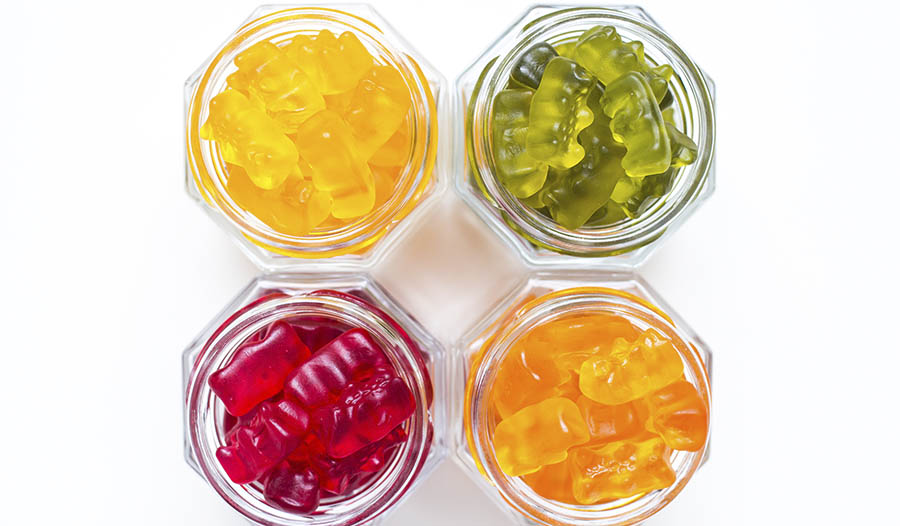A Quick Guide to Gummy Vitamins

Gummy-based supplements have exploded across the health and wellness market. However, is this convenient supplement form a good thing? Yes and no. Yes, if the gummy is a high quality it can be a great delivery system for nutrients and functional ingredients. No, if the gummy is loaded with sugar, food additives, and contains low quality and dosage of nutrients.
Essential Nutrients Matter Most
The first thing to understand about gummy vitamins is that the amount of actual nutritional compounds in the gummy is limited. In other words, gummies will never be able to provide the same level of nutritional compounds that you would find in capsules, tablets, liquids, and other forms of supplements. In addition, many nutrients are not as well suited for use in gummies because they taste so bad. Gummies may be fine for providing small quantities of vitamins and other lower dosage nutritionals, but they cannot provide meaningful levels of major minerals and many other nutritional compounds.
Gelatin or Pectin?
The most popular base for gummies is gelatin, with the second more popular being pectin. Is one better than the other? The big difference is that one is from animal sources, the other from fruit.
Gelatin is a processed protein from pigs, cattle, and, to a much lesser extent, fish. It is primarily a byproduct of the meat industry. Pig gelatin is by far the most popular source of commercial gelatin. This source creates a problem for both people following Halal and Kosher diets that forbid the consumption of any part of the pig.
Gelatin has a lot going for it as a gummy base because it is tasteless, clear, and provides a “melt-in-your-mouth” quality. However, the reason for that melt-in-your-mouth experience is also a drawback as it means that gelatin is sensitive to heat. While the heat in the mouth is responsible for melting the gelatin to produce the more intense, rapid release of flavor, heat can also be a problem in shipping gelatin-based gummies during the summer months.
Pectin is a fruit-based gelling agent. Citrus peel is the most widely used source of pectin, followed by apple. It obviously appeals to people following vegan, vegetarian, Kosher, and Halal diets. Pectin is a great option over gelatin, for other reasons. It is more heat resistant than gelatin, and can be shipped all year without concern of melting. The drawback for some is that while it is still able to deliver a gel-like feel, it has a different texture than gelatin. Pectin is softer with less chewiness and elasticity. However, many people actually prefer pectin-based gummies for these reasons.
Check the Ingredient List
Another issue beyond the sugar content of many gummy supplements is that they often contain undesirable ingredients such as artificial preservatives, colors, and flavorings. My recommendation is to read product labels carefully and avoid any gummies that contain these additives.
Gummy Vitamin Pros and Cons
For those who are not in the habit of taking supplements of any form, gummy vitamins may provide a convenient method to fill in nutritional gaps. Be sure to choose a brand that uses natural coloring agents and minimal levels of sugar. Store gummy vitamins at room temperature and check the label to see if refrigeration is recommended. Lastly, keep in mind that not all gummy vitamins are made equally. If you decide to supplement with gummy vitamins make wary decisions about the brands and ingredients you choose.
PENAFIAN:PUSAT KESEHATAN tidak dimaksudkan untuk memberikan diagnosis...
















































































 Daftar Isi
Daftar Isi
















